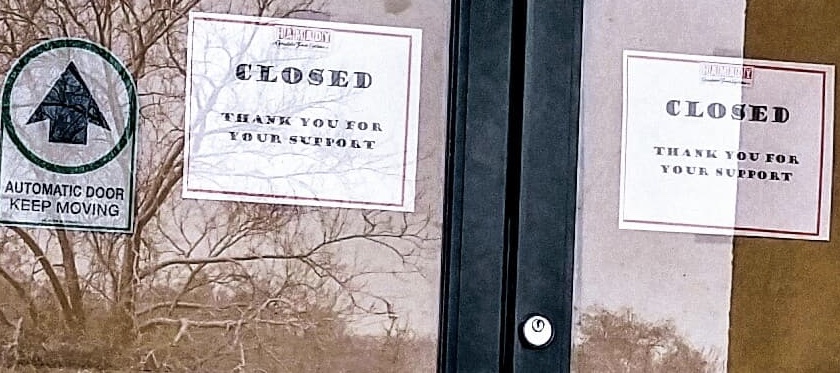By Paul Rozycki
Even for those of us who are political junkies, trying to keep up with the Trump chaos of tariff wars, stock market crashes, federal employee firings and re-hirings, dubious deportations, attacks on colleges, and endless court challenges to most of his executive actions can be emotionally exhausting.
There is no doubt that it is important to stay informed and stay active in opposing what we are seeing happen to our government today. Recent protests are a positive sign that the opposition to Trump’s actions is building. The federal courts have shown that they are at least willing to step in and pause or halt some of Trump’s actions, and a few Republicans like Lisa Murkowski (R-Alaska) and Susan Collins (R-Maine) have begun to express doubts about some of his actions, too.
All of that is important, and it all needs to continue. But for many, the day-by-day, hour-by-hour tsunami of Trump actions and reactions is energy-zapping. We need to pace ourselves and not get burned out.
What follows are a few suggestions to keep your sanity during these insane times. Some are personal observations, others are from professional psychologists or therapists.
My own story
A few weeks ago, as part of an art talk for a photo show at Mott Community College, I described how photography led me to become involved with journalism and a local newspaper; how that interest in journalism led me to study history and political science; and how that studying led me to a five-decade career in teaching in spite of my initial plans for journalism.
I remain a political junkie and end up watching all too many news programs day in and day out, but while photography led me to politics it has also been an escape.
When I’ve had too much political news I find it rewarding and relaxing to drive around town, look for an interesting building or a new mural I haven’t seen before, and take a few photos.
One great way to forget about the turmoil of today’s politics is to take a nature walk at For Mar, Pierce Park, Kelly Lake or one of the many other parks in the county, breathe the fresh air, enjoy the scenery and the wildlife, and take a few photos.
Some other personal views
Many also choose to limit the amount of daily news they consume.
When the national news broadcasts come on, my wife Nancy will often decide that it’s a good time to feed the cats. She will also spend her time buying and sending a variety of cards and other notes to her long list of friends and pen pals. She says the activity of writing letters and sending cards raises her spirits.
But when she does phone one of her best friends who shares the same views on Trump, they agree to say no more than two sentences about what he’s been up to that day before going on to other topics. And, of course, nothing eases political tension for Nancy more than a trip to Frankenmuth for mac n’ cheese and a few new ornaments and postcards.
One of my colleagues has decided to limit his political news intake and instead has been using his time to explore his large music collection and rediscover his favorite albums and CDs.
Others find that a walk through the galleries and art shows of the Flint Institute of Arts, Buckham Gallery or the Greater Flint Arts Council is a good way to take a break from the constant beat of the news.
Professional advice
In addition to personal views on how to deal with today’s political turmoil, psychologists and therapists have professional advice for those dealing with the emotional impact of politics.
In a 2018 “Psychology Today” article, John Manuel Andriote offered several suggestions:
- Get active and get involved with the community. Andriote suggests that rather than holding your frustration in and letting it upset you, getting involved with a cause you agree with can be liberating. Aiding others who are dealing with similar issues can be a positive way of dealing with your own frustrations.
- Limit social media. It’s very easy for people to be pulled into angry debates on social media. Facebook and Twitter can bring out the most divisive aspects of human nature and engaging on such platforms often resolves little.
- Resist emotional appeals. What Andriote refers to as “mindful resistance” is the process of consciously not responding to the angry and inflammatory words that come from others. Save your anger and energy for the most important issues. Don’t feel the need to respond to every tweet and minor issue that attracts attention.
In 2024, Michelle Riba, M.D., M.S., psychiatrist and member of the University of Michigan Eisenberg Family Depression Center responded to concerns over politically induced stress on the University of Michigan Department of Psychiatry website. She says that the tension from today’s political conflicts can have a detrimental impact on an individual’s health.
Like Andriote, Reba notes that not every story deserves our full attention or personal reaction, and we should be aware of how much time we spend dealing with politics and political conflict.
She also notes that we should be aware of our impact on others: even if you’re very active and involved, others may not have that level of interest. Further, we should be open to others and willing to listen to what they have to say. Even if you don’t agree, listening can reduce tension and may lead to civil dialogue.
Finally, Dr. Lillie McCain, a colleague of mine who taught psychology for many years at Mott Community College, offered her thoughts on dealing with the emotional impact of the Trump administration:
“Believing that we can do nothing about this situation, many people feel overwhelmed,” Dr. McCain explained over email. “Intense anger, despair and other negative emotions loom large, and these emotions can be detrimental to us physically, mentally and emotionally. However, such feelings are normal responses to the current state of uncertainty.”
Her advice was to recognize the situation, get involved, and know that the nation can survive.
“It is unlikely that the quality of leadership will change in a positive way,” she wrote. “Therefore, it is necessary for us to create supportive venues wherein it is safe to realistically discuss the situation with like minds. Realize that we can only regulate ourselves, and frequently remind ourselves that we are not alone.”
She suggested one might “forego expecting stability” in the country and instead choose to “stabilize your own emotions by doing for yourself whatever you are able to control.”
“For example, rather than believing that you are helpless, take a stand to join in protest, write letters to your representatives, invest in strengthening your spiritual connections,” she offered. “We can make it through this.”
I think Dr. McCain said it best. Take care of yourself, pace yourself, and be willing to take action. You can make a difference, and we can make it through this.
This article also appears in East Village Magazine’s May 2025 issue.







